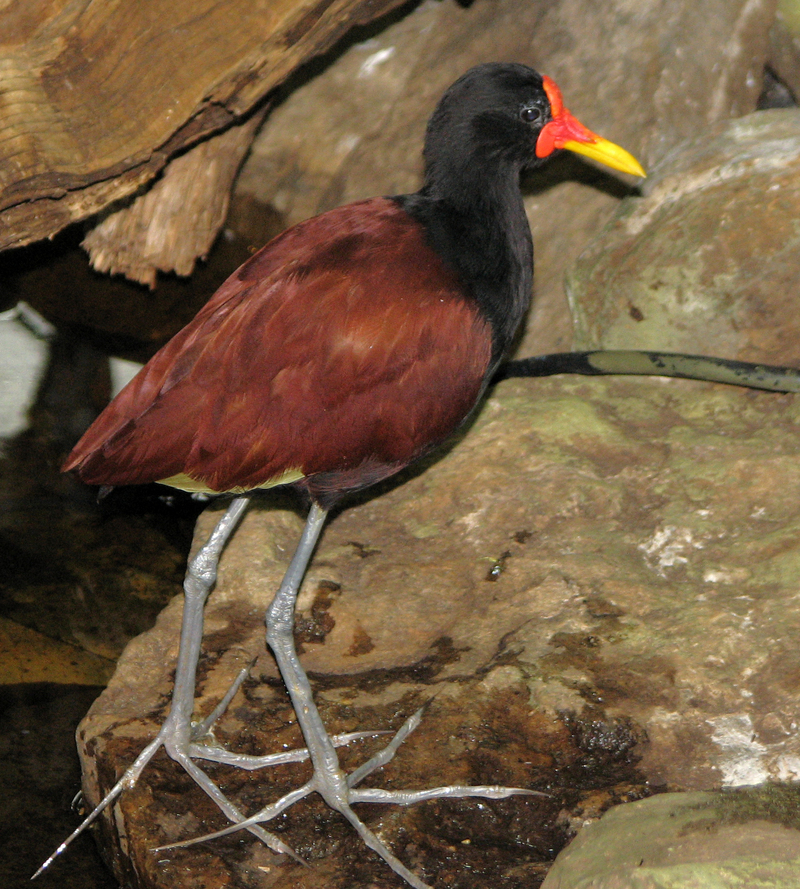ERROR : Server Busy(-1105)
ERROR : Server Busy(-1105)
Wattled Jacana (Jacana jacana) - Wiki
Wattled Jacana
From Wikipedia, the free encyclopedia
[Photo] A Wattled Jacana (Jacana jacana) at the Bird Kingdom aviary in Niagara Falls, Ontario, Canada. Author Pharaoh Hound (http://commons.wikimedia.org/wiki/User:Pharaoh_Hound)
The Wattled Jacana Jacana jacana is a wader which is a resident breeder from western Panama and Trinidad south through most of South America east of the Andes.
The jacanas are a group of wetland birds, which are identifiable by their huge feet and claws that enable them to walk on floating vegetation in the shallow lakes that are their preferred habitat. They are found worldwide within the tropical zone.
The Wattled Jacana lays four black-marked brown eggs in a floating nest. The male, as with other jacanas and some other wader families like the phalaropes, takes responsibility for incubation, with two eggs held between each wing and the breast. The females are polyandrous, and will help to defend the nests of up to four mates.
These are conspicuous and unmistakable birds. They are 17-23cm long, but the females are larger than the males. The adults have a chestnut back and wing coverts, with the rest of the body mainly black. In flight the greenish yellow flight feathers are obvious. The yellow bill extends up as a red coot-like head shield and a reddish wattle, and the legs and very long toes are dull blue-grey. There is a long sharp spur on the bend of the wing.
Young birds initially have entirely white underparts, and can always be identified by the presence of white in their plumage.
There are six races, with the nominate J. j. jacana being the most widespread. Several of the other subspecies are similar, but J. j. hypomelaena of western Panama and northern Colombia has all the chestnut plumage replaced by black, and J. j. scapularis of western Ecuador has some black feathers on its chestnut shoulders, and white outer primary feathers.
This species produces a range of noisy rattling calls.
The Wattled Jacana's food is insects, other invertebrates and seeds picked from the floating vegetation or the water’s surface.
http://en.wikipedia.org/wiki/Wattled_Jacana
| The text in this page is based on the copyrighted Wikipedia article shown in above URL. It is used under the GNU Free Documentation License. You may redistribute it, verbatim or modified, providing that you comply with the terms of the GFDL. |
|

